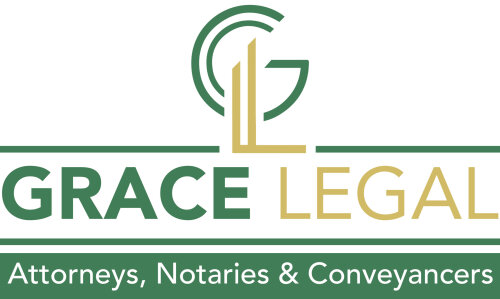Best Administrative Lawyers in Gaborone
Share your needs with us, get contacted by law firms.
Free. Takes 2 min.
List of the best lawyers in Gaborone, Botswana
About Administrative Law in Gaborone, Botswana
Administrative law in Gaborone, Botswana, involves the legal principles governing the administration and regulation of government agencies (both state and federal). It determines the organization, powers, duties, and functions of public authorities. This area of law ensures that government actions comply with the law, protect individual rights, and provide fair procedures. Administrative law addresses issues such as regulatory compliance, licensing, rulemaking, adjudication, and enforcement of public policies.
Why You May Need a Lawyer
There are several situations where you may require legal assistance in the field of administrative law in Gaborone, Botswana:
- Challenging a government decision or action that affects your rights or interests.
- Applying for or renewing licenses, permits, or other authorizations.
- Facing regulatory compliance investigations or enforcement actions.
- Seeking judicial review of administrative decisions.
- Handling disputes involving public benefits, social services, or employment under government contracts.
- Understanding and navigating the complex regulatory framework of various government agencies.
- Negotiating and drafting agreements with government entities.
Local Laws Overview
In Gaborone, Botswana, administrative law is guided by several key legislative instruments and legal principles. Some of the most significant include:
- Constitution of Botswana: Establishes the framework for government powers and individual rights.
- Administrative Procedure Act: Governs the processes that administrative agencies must follow.
- Government Policy and Regulations: Specific rules and regulations issued by various government departments and agencies.
- Judicial Review Act: Provides mechanisms for reviewing the legality of administrative decisions.
- Public Service Act: Regulates the employment and conduct of public servants.
- Freedom of Information Act: Ensures public access to government records and information.
Frequently Asked Questions
What is administrative law?
Administrative law is the body of law that regulates the activities of government agencies. It involves rule-making, adjudication, and enforcement of public policies. It ensures that government actions are lawful, reasonable, and fair.
When should I seek legal advice for an administrative matter?
You should seek legal advice if you encounter issues such as challenging a government decision, dealing with regulatory compliance, applying for licenses, or needing representation in hearings involving government agencies.
How can I challenge a government decision in Gaborone?
You can challenge a government decision through various mechanisms such as filing complaints with the relevant agency, seeking an internal review, or applying for judicial review in the courts.
What is judicial review?
Judicial review is a process where the courts review the actions or decisions of government agencies to ensure they comply with the law, do not exceed their authority, and follow fair procedures.
What are administrative agencies?
Administrative agencies are government bodies created by law to implement and enforce specific public policies. They have the authority to make rules, adjudicate disputes, and take enforcement actions.
What role do lawyers play in administrative law matters?
Lawyers assist in navigating the complex regulatory environment, represent clients in disputes with government agencies, draft legal documents, negotiate with public authorities, and ensure compliance with relevant laws and regulations.
What are my rights under administrative law?
Under administrative law, you have rights such as the right to a fair hearing, the right to legal representation, the right to access government information, and the right to challenge unlawful or unreasonable decisions made by public authorities.
How do I apply for a government license or permit?
You can apply for a government license or permit by submitting an application to the relevant government agency, providing the required documentation, and complying with any specific requirements stipulated by law.
What is regulatory compliance?
Regulatory compliance refers to the process of adhering to laws, regulations, and guidelines issued by government agencies. It involves ensuring that business operations and activities meet legal standards.
Can I get compensation for an unfair administrative decision?
Depending on the circumstances, you may be entitled to compensation or other remedies if you can prove that a government decision was unlawful, unreasonable, or caused you harm. Legal advice is essential in these cases.
Additional Resources
Here are some resources and organizations that can be helpful:
- Botswana Ministry of Justice: Provides information on legal services and access to justice.
- Botswana Law Society: Offers resources and directories for finding qualified lawyers.
- Public Protector (Ombudsman): Investigates complaints about government actions or decisions.
- Botswana Unified Revenue Service (BURS): For tax-related administrative issues.
- Local Legal Aid Clinics: Offer free or low-cost legal assistance for those who qualify.
Next Steps
If you need legal assistance in administrative law in Gaborone, Botswana, consider the following steps:
- Identify the Issue: Clearly define the problem or legal issue you are facing.
- Gather Documents: Collect all relevant documents, correspondence, and evidence related to your case.
- Seek Legal Advice: Contact a qualified administrative lawyer or legal aid organization to discuss your situation.
- Evaluate Options: With your lawyer, evaluate your options, including negotiation, mediation, or litigation.
- File a Complaint or Appeal: If necessary, file a formal complaint or appeal with the relevant government agency or court.
Acting promptly and seeking professional legal advice can help you protect your rights and navigate the complexities of administrative law effectively.
Lawzana helps you find the best lawyers and law firms in Gaborone through a curated and pre-screened list of qualified legal professionals. Our platform offers rankings and detailed profiles of attorneys and law firms, allowing you to compare based on practice areas, including Administrative, experience, and client feedback.
Each profile includes a description of the firm's areas of practice, client reviews, team members and partners, year of establishment, spoken languages, office locations, contact information, social media presence, and any published articles or resources. Most firms on our platform speak English and are experienced in both local and international legal matters.
Get a quote from top-rated law firms in Gaborone, Botswana — quickly, securely, and without unnecessary hassle.
Disclaimer:
The information provided on this page is for general informational purposes only and does not constitute legal advice. While we strive to ensure the accuracy and relevance of the content, legal information may change over time, and interpretations of the law can vary. You should always consult with a qualified legal professional for advice specific to your situation.
We disclaim all liability for actions taken or not taken based on the content of this page. If you believe any information is incorrect or outdated, please contact us, and we will review and update it where appropriate.

















